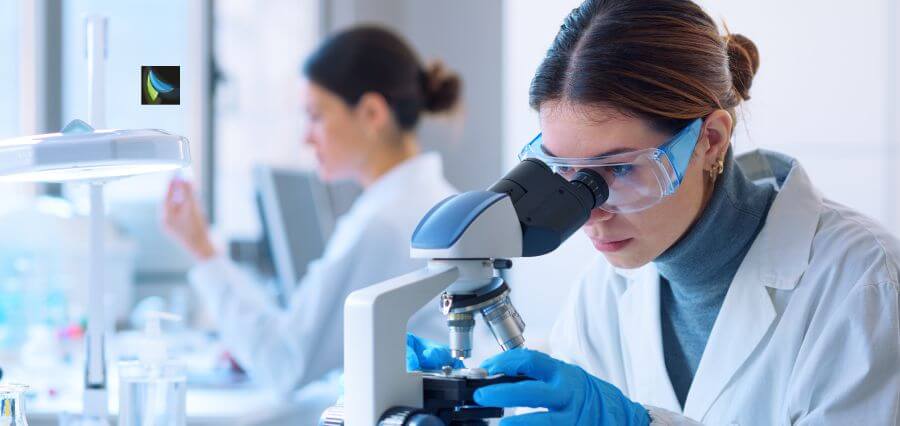Biotechnology constitutes a crucial segment of the modern agriculture sector, especially with regard to seed production. This innovative domain of biology, technology, and engineering finds application to upgrade crop quality and yield. The world population is expected to increase to almost 9.7 billion by 2050, and the magnitude of food requirements continues to increase accordingly. Biotechnology helps answer the tough challenge in this regard and produces more food using fewer resources.
Understanding Biotechnology in Agriculture
Biotechnology refers to the alteration of living things or constituents that produce goods meant for the human advantage. This primarily occurs within agriculture through the use of genetic engineering, supplying seeds that are strengthened, more nutritious, and productive. In the past, traditional plant breeding was adopted to select desirable traits in plants. With biotechnology, more careful changes at the genetic level can provide faster and more predictable consequences.
For example, GMOs can be engineered to resist diseases and pesticides. This results in lesser chemical pesticides that need to be used to protect crops. According to ISAAA reports, about 190 million hectares of land were planted with biotech crops solely in 2020. On this front, impressive adoption is observed, which showcases the extensive resorting to biotechnology by farmers.
Increasing Crop Resistance
Probably one of the most important uses of biotechnology is its capacity to increase crop resistance, which would be one of the significant factors in agriculture threatened by climate change. Unpredictable weather patterns would bring extreme conditions such as droughts and floods into existence. The biotech seeds could be developed to withstand these challenges. As one example, drought-resistant varieties can have yields even under water-limited conditions.
Drought-tolerant maize varieties have shown a potential increase in yields by up to 30% where there is scarce water. It is fundamental for food security but also to keep livelihoods going in farming communities. Improvement in seeds to survive hostile conditions is pretty vital as biotechnology ensures food production does not change in the face of environmental challenges.
Nutritional Content Improvement
Another dimension of biotechnology in seed production involves enhancement for nutritional content. Most staple crops lack essential vitamins and minerals, and this leads to malnutrition among people who mainly rely on these foods. These crops could be enriched with vital nutrients using biotechnology.
One of the most recognized is “Golden Rice,” a genetically modified crop engineered to provide higher levels of beta-carotene, which the human body can then convert into vitamin A. Such a development aims to counteract vitamin A deficiency, currently affecting millions of people worldwide and exacerbating health issues such as blindness and even mortality among children. In addition, it enhances the nutritional quality of staple foods, thus making biotechnology a valuable contribution to public health.
Improving Agricultural Efficiency
It further enhances the efficiency of agriculture because resource inputs are diminished while outputs are maximized. For example, old-style farming uses much water, fertilizers, and pesticides. However, biotech crops have improved upon this by minimizing the consumption of all these resources.
For instance, some of the genetically engineered cotton varieties have been engineered with genetic alterations that make them resistant to pests. This reduces the chemical pesticide usage by at least 50%. According to a research by the Food and Agriculture Organization, the adoption of biotechnology crops has cut the use of pesticides in the world by a substantial number of 37% since the entry of biotechnology crops. This saves the farmers a percentage of the production costs while at the same time minimizing the impacts on the environment.
Economic Advantages for Farmers
The economic implications of biotechnology in seed production are deep. Biotech seeds users will have higher yields and lower costs of pest and fertilization management. According to studies, between 1996 and 2018, farmers growing biotech crops earned an additional $186 billion worldwide, as a result of increased productivity and lower input costs.
Moreover, bio-tech crops open up new market opportunities for the farmers as it enables the farming community to produce high-quality products that cater to the demand of the consumers. For instance, markets such as the non-GMO market have emerged due to consumers’ desire for products not genetically modified. Farmers benefit from knowledge in biotechnology to navigate such markets.
Coming to Ethical Concerns
While the biotechnology has much to offer, it also raises ethical issues that must be taken care of. Issues such as loss of biodiversity and long-term effects in ecosystems are real questions in the debates concerning GMOs. Regulatory frameworks have the power to sanction whether or not biotech products would be safe for human consumption and would not harm the environment.
Acceptance further relies on public perception. Education and open communication about the benefits and risks associated with biotechnology should be set up to enable trust in consumers.
Conclusion
It has managed to transform the mode of seed production in modern times. Crop resilience, better nutritional value, improved efficiency, and the economic advantages that follow for the farmer are hallmarks of much of its influence. For a world facing population growth and climate change challenges, which imperatively translates into increased food demands, the importance of biotechnology will only increase.
Responsible, ethical uses of scientific discoveries can lead to a sustainable agriculture future honoring the needs and rights of all people while looking after the environment. Continuous development and application of biotechnological innovations will be critical in achieving worldwide food security.


















